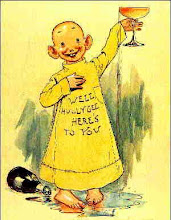
“What time is it?”
“Quarter to one.”
“Quarter to one! It’s taken almost half an hour to cross GK.”
“Yeah, it does take quite a lot of time.”
“I asked a rickshaw to take me to the main road, he asked for twenty rupees.”
“Twenty? Should have been, maybe, fifteen.”
“That’s what I think. The guy must have thought I’m some new-comer who wouldn’t know if he overcharges me. Hah.”
“I know that’s what they do.”
“I’d rather walk when I can. People don’t walk enough, anyway.”
“Where’d you ask the rickshaw?”
“Right near the market back there.”
“Oh, from there. Then it should have been even less than fifteen.”
“I know. Ten rupees would have been fair. In any case it is good to walk. People just don’t walk anymore. They sit in their air-conditioned cars and move around.”
“Yes, that’s true. I have been walking for about the last hour, or so.”
“Is it something to do with your job?”
“No I had to pay the water bill. I thought I’ll walk for it.”
“That’s very good. That’s what one should do. I myself like to walk about two or three kilometers every morning. It’s good for one’s health, keeps the body fit. Otherwise people fall to some many diseases nowadays. The body needs to be exercised.”
“People don’t even breathe in fresh air anymore.”
“Yes, that too they don’t.”
“I used to walk back when I was in college. But ever since I started working, I have been in offices and haven’t been active as I used to be.”
“Are you married, or unmarried?”
“… Unmarried.”
“Oh then you need to work harder to regain your fitness. Normally someone would have your structure after they are married. You need to work more for your stomach.”
“Well, yes, I’m trying. Well I have to go this way. See you.”
“Okay, bye.”




